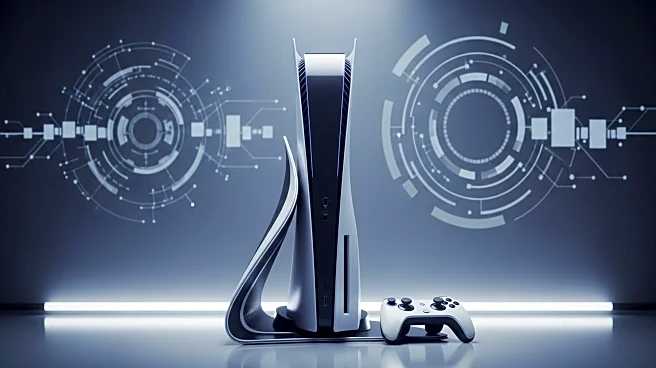What's Happening?
Brynn Putnam, known for her successful launch of the fitness device Mirror, is set to unveil her latest venture at TechCrunch Disrupt 2025 in San Francisco. After selling Mirror to Lululemon for $500 million, Putnam is now focusing on a new cultural trend that emphasizes in-person connections. Her new company, operating in stealth mode, aims to develop consumer gaming hardware that encourages face-to-face interactions, moving away from the isolation often associated with individual gaming devices. This shift reflects Putnam's vision of technology enhancing human connections rather than detracting from them.
Why It's Important?
Putnam's new venture highlights a significant shift in consumer technology trends, focusing on shared experiences rather than solitary ones. This approach aligns with a broader industry movement towards consumer hardware investments, leveraging AI and established component ecosystems. The involvement of Lerer Hippeau, a venture firm that previously funded Mirror, indicates strong investor confidence in Putnam's ability to capitalize on emerging trends. Her new project could redefine how technology is used to foster human connections, potentially influencing future developments in the gaming industry and consumer tech.
What's Next?
TechCrunch Disrupt 2025, scheduled for October 27-29, will provide a platform for Putnam to unveil her new project. This event is expected to attract entrepreneurs and investors interested in the future of consumer technology. Attendees will gain insights into Putnam's innovative approach and the evolving landscape of tech-driven human interactions. Early registration for the event offers significant savings, encouraging participation from those keen on staying ahead of industry trends.
Beyond the Headlines
Putnam's venture into gaming hardware could have deeper implications for the tech industry, potentially sparking a 'golden age of hardware' driven by advancements in display technologies and AI. Her focus on enhancing human connections through technology may also influence ethical considerations in tech development, promoting designs that prioritize social interaction over isolation.











